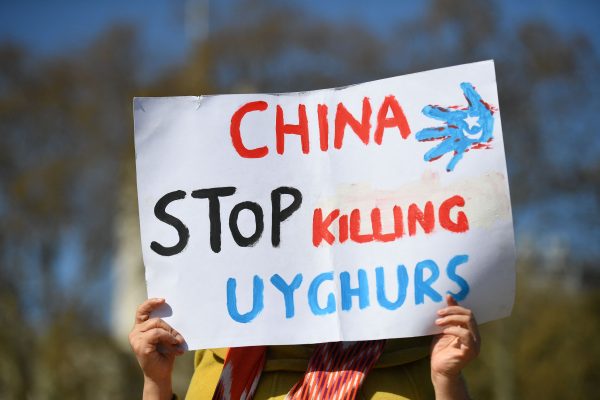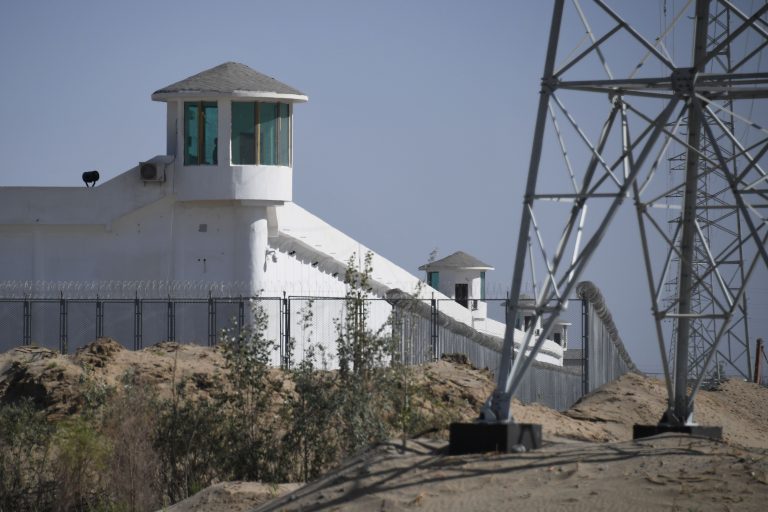A recently published report entitled “Driving Force: Automotive Supply Chains and Forced Labor in the Uyghur Region” reveals that nearly every major auto manufacturer on the planet directly or indirectly exploits forced labor in the Xinjiang Uyghur Autonomous Region (XUAR).
The report is the result of a six-month investigation undertaken by Laura T. Murphy, Kendryl Salcito, Yalkun Uluyol, Mia Rabkin and a team of anonymous researchers who conducted an analysis of publicly available documents that revealed “massive and expanding links between western car brands and Uyghur abuses, in everything from the hood decals and car frames to engine casings, interiors and electronics.”
The team of researchers found that 96 companies “relevant to the auto industry” that mine and process raw materials or manufactures parts, including 38 with “documented engagement in labor transfer programs” were connected to forced labor in the XUAR. In addition, the report alleges that over 100 international auto and auto parts manufacturers are at risk of sourcing products that rely on forced labor in the region.
Every major car brand including Tesla, Volkswagen, BMW, Honda, Ford, GM, Mercedes-Benz, Toyota, Fiat, Chrysler, Dodge, Jeep and NIO are at high risk of sourcing from companies linked to abuses in the Uyghur region. A full list of companies can be found here.
The report concludes that the greatest exposure comes from “the steel and aluminum used to make car frames, axels, bodies, engine casings, wheels and brakes” and explains that “the world’s largest steel and aluminum producers have shifted into the Uyghur Region under Chinese government subsidies and incentives,” and that “tires, interiors, windshields, batteries and practically every other major part are also implicated.”
Steel, aluminum, electronics and more
Success
You are now signed up for our newsletter
Success
Check your email to complete sign up
The production of steel, aluminum, copper, nickel, batteries, electronics, tires and other parts for automobiles have all been traced back to forced labor in the XUAR.
Steel, for instance, makes up roughly 60 percent of a car and the world’s largest supplier of steel — state-owned China Baowu — is also the largest steel producer in the XUAR.
“Transferred Uyghur laborers marched for hours to Baowu mines and factories during Covid lockdowns, then were quarantined on-site in sub-standard housing to keep producing steel,” the report reads.
The region also produces about one tenth of the globe’s aluminum or 6.6 million tons per year. The region is responsible for producing more aluminum than India, Russia, Canada “or any other major aluminum producer outside of China.”
“Transferred Uyghur laborers work directly in the sweltering and dangerous smelting rooms as well as in hazardous carbon anode manufacturing plants. Labor transfers into aluminum smelters were documented as recently as 2022,” the report reveals.
Forced labor in the region is suspected of being used to produce batteries for both traditional and electric vehicles. China processes about 60 percent of the world’s lithium — used primarily to produce batteries for electric vehicles — and a growing percentage of the refinement of lithium is underway in the XUAR.
Xinjiang Asia-Europe Rare Metal is the largest producer of lithium in the Uyghur Region and is documented as having received “assigned” workers since at least 2017. “Its partners include upstream suppliers of the world’s largest lithium-ion battery producers,” the report says.
Much of the electronics used in the manufacturing of automobiles have also been traced back to the Uyghur Region. Forced labor has been found to be used to produce circuit boards, central control systems, safety control systems, touchscreens, transformers, inductors, connectors, and wiring solutions for the automotive industry.
Nearly 60 automotive companies including luxury brands like Aston Martin, Audi, BMW, Mercedes-Benz, Ferrari, and Rolls Royce have been identified as benefiting from forced labor in the region from the production of electronic components.
READ MORE:
- Jiang Zemin, Former CCP leader Notorious for ‘Rule by Corruption’ and Persecution of Falun Gong, Dead
- Uyghurs Killed by Mass Disinfectant Spraying During ‘Zero-COVID’ Sweeps
- Canada’s Liberal Party Orders Mining Companies to Divest From China;s State Run Enterprises
An industry-wide problem
“We traced the customers of companies that mine, process, and manufacture products relevant to the automotive industry that have engaged in forced labor in the Uyghur Region. The results were startling – practically every major traditional automotive and electric vehicle manufacturer has significant exposure to forced labor in the Uyghur Region,” the report alleges.
Researchers painstakingly illustrate in the report how hundreds of companies downstream of the Uyghur region form supply chains reliant on forced labor from the XUAR.
The authors of the report recommend that governments and legislatures “should enact and implement mandatory human rights due diligence laws and ensure the laws require companies to address human rights risks beyond first-tier suppliers, in recognition that abuses can easily be distanced from direct suppliers under state-controlled economic systems.”
In addition the report recommends that governments implement bans on imports linked to forced labor and that governments should identify the automotive sector as a priority for the implementation of forced labor import bans.
For auto companies the report says “car companies should work individually and collectively to conduct or commission their own supply chain mapping and analysis of raw materials mining and processing and parts manufacturing in the XUAR.”
In addition the report recommends that the automotive industry as a whole should collaborate to cease sourcing all products mined, made, or manufactured, in whole or in part, in the Uyghur Region.
The report further recommends that auto manufacturers should adhere to the UN Guiding Principles on Business and Human Rights and that manufacturers should publicly report “on findings of supply chain links to the XUAR to facilitate knowledge of supply chain risks across the automotive industry and industries with related supply chains.”
The researchers concede that “remediation of harms inside China is impossible at this time” and further recommend that car companies collaborate with raw material industries to implement reparations to “Uyghurs and other minoritized populations in the diaspora working to address oppression and exploitation in the Uyghur Region.”

China’s reaction
The communist Chinese government has rejected the idea that forced labor exists in Xinjiang, accusing the U.S. of inventing the claim to hamper China’s growth.
Chinese embassy spokesman, Liu Pengyu, according to VOA News said, “As the Chinese side has stressed many times, the allegation of ‘forced labor’ in Xinjiang is nothing but a lie of the century. ‘Forced labor’ in Xinjiang is a lie deliberately made up and spread by the U.S. to shut China out of the global supply and industrial chains.”
He added, “the U.S. is practicing unilateralism and protectionism, seriously undermining market principles and violating [World Trade Organization] rules. The U.S. approach is not conducive to the alleviation of global inflation and the recovery of the world economy. China will take necessary actions to safeguard national sovereignty, security and development interests, and resolutely protect the legitimate rights and interests of the people of all ethnic groups in the region.”
Numerous reports from a variety of sources dispute the Chinese government’s claims.
According to a report published in August, 2022, by Tomoya Obokata, the U.N. special Rapporteur on contemporary forms of slavery, it concluded that coerced labor among Uyghurs, Kazakhs and other ethnic groups has been taking place in the XUAR and in Tibet.
Obokata says that China has implemented two state-mandated systems to subject people to forced labor including a system through vocational training centers where “minorities are detained and subjected to work placements” and a method of “poverty alleviation through labor transfer” which transfers laborers “into secondary or tertiary sector work.”
In yet another report, published by the U.S. Department of Labor entitled “Against Their Will: The Situation in Xinjiang” the authors state that there are numerous “severe and well-documented, widespread abuses,” and that the world must remain “vigilant with respect to labor and goods linked to Xinjiang.”

















